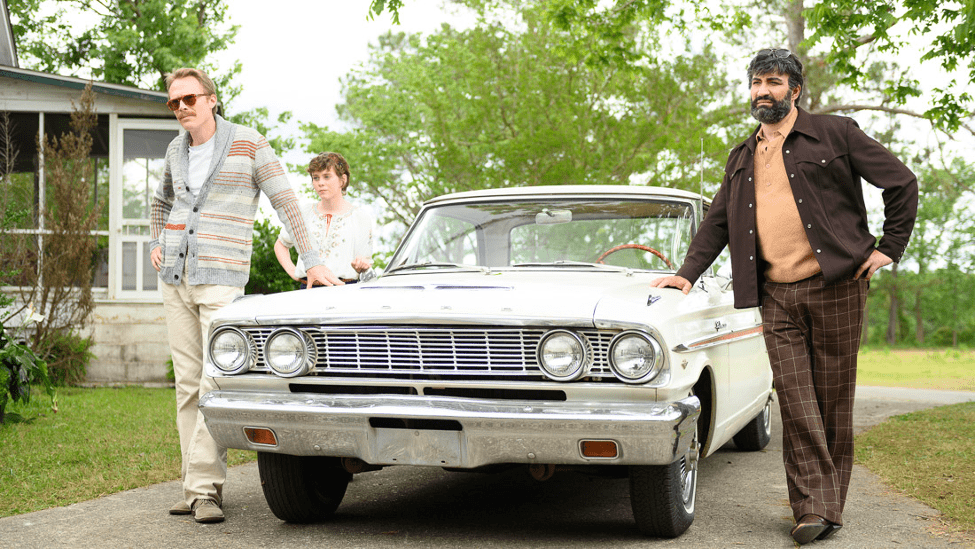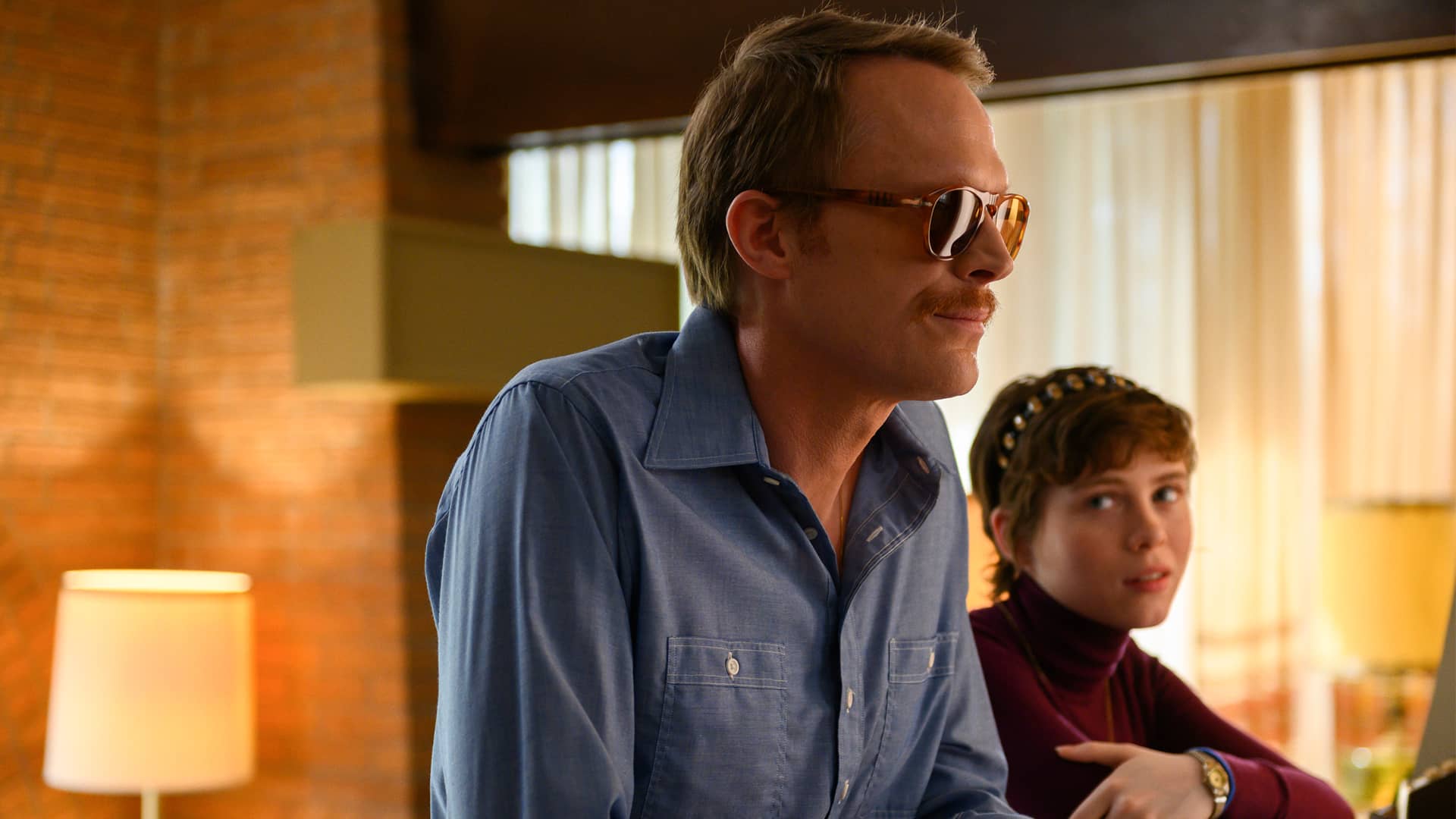Author: Joel Dull
Uncle Frank avoids cliché by incorporating real dramatic consequence, but its happy ending hides the 70-million-person truth.

Beth Bledsoe (Sophia Lillis) is the 14-year-old southern-girl who’s already too big for her small town. She’s well read and far more intelligent than her family realizes. Relegated to the kids table at family meals, but she acts as the mother when the adults don’t want to. Misunderstood by all except for one person. Her Uncle Frank (Paul Bettany). He’s the stoic one who sits on the porch with a book and a fashionable cigarette while the other men shout at the football game with a few packs of beer. Frank is the only one that recognizes Beth as a young woman. But they only see each other a few times a year. Frank is an NYU lit professor and he’s everything that Beth wants to be.
Spurred by her Uncle’s advice Beth sticks on her path of straight A’s and makes her way to NYU. A college boyfriend, a few martinis, and Beth’s new life is underway. The first 15 minutes of the film rush us through character building by way of voice over and plop us down at the moment where Beth starts to discover the truth about her uncle’s life in the city. That’s quickly halted when Beth’s grandfather, Frank’s dad, passes away. A long car ride presents the opportunity for the two relatives to grow closer. Up until now the story is focused on Beth’s coming of age and her growing relationship with Frank. The further south the car goes, though, and the less those two things are relevant. Their relationship becomes an underdeveloped B-plot and Beth’s growth as an individual almost disappears completely. It only pops back up for the occasional punch line and reminder that the film has a budding feminist as one of its players. And although her lines are witty and Lillis delivers them with an enjoyable amount of awkwardness and every bit of pride, they feel like a box check rather than a well implemented aspect of the story.
Frank’s past becomes the focal point and layers of flashbacks dive deeper and deeper into how dark Frank’s life is. They string you along like it’s a mystery, allowing you to figure out the next secret a few moments before it happens. This isn’t a mystery, though. Without the desire to find out “whodunit,” the story comes across as predictable.
Up until this point you’re probably wondering how I think this avoids cliché. While predictable, the emotional heft of the twists and turns offer authenticity to the story. Writer/director Alan Ball gives enough emotion to the film that you can occasionally be distracted from the faults that exist. Along with that, Bettany’s performance, which is solid if you excuse a somewhat shaky southern accent, brings unique qualities to an otherwise archetypal character. But his performance does not save the film from a busy plot that has characters fall in and out as it pleases.
This film does have an audience. It is the movie that every “fiscally conservative socially liberal” person wants to see at Thanksgiving. And for the leftist in the family Zoom call this year, this is the film that you’ll be rolling your eyes at when your aunt talks about how it made her cry. Of the many moments where the film tries to sit us down and offer up some advice, there is one that counters the supposed happy ending. Frank’s partner Walid (Peter Macdissi) explains how “nice” is a cover for what people hide underneath and it’s the stuff underneath that he’s interested in. Come the end of the film though, that’s exactly what we’re left with. Nice. “No problem” are the words Frank receives from his family after his sexuality is revealed. A few hugs and insensitive remarks to show how the family is trying their best and that’s it. Soft-focus. Warm color grading. Cheesy voice over. Fade to black. “It’s 1973 you can be gay and there’s no problem with that.” I wish I made that line up, but it shows up in multiple forms throughout the movie. It’s 2020 and queer people, especially trans black women, are still ostracized and murdered. 70 million Americans voted for President Trump, voted against the rights and safety of queer people. “No problem” is the cover for “I love you cause you’re my brother, but your rights aren’t more important to me than the tax breaks my oil company gets.”
I would not be surprised to see this earning nominations at the Oscars because it ticks all of the Academy’s boxes for representation. It talks about politics, but everyone’s happy in the end so no one’s feelings get hurt. This film clapped its hand and said “job done” when gay marriage was legalized. There’s a place for movies that allow people to be happy and celebrate. This is not that movie. It has too many conversations hiding underneath “nice.”
Joel Dull | Watch Brokeback Mountain | KXSU Digital Media Director
Uncle Frank will be available to stream November 25 on Amazon Video.

